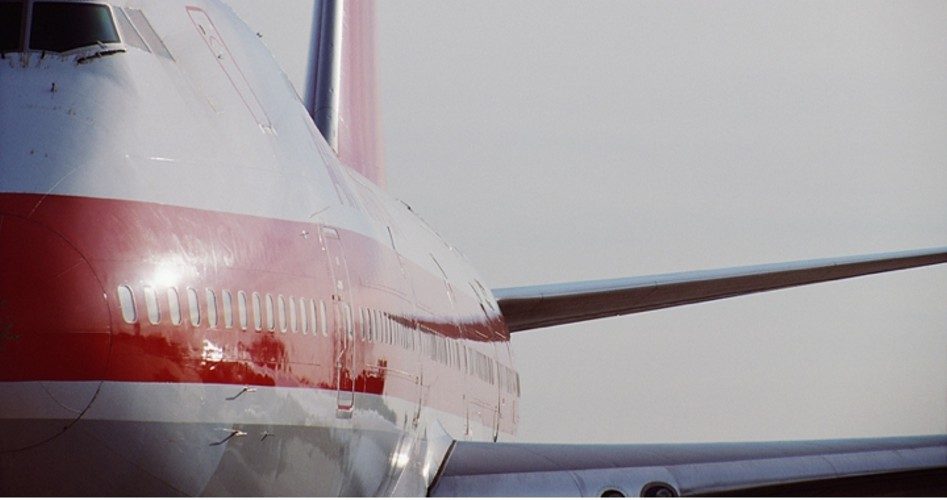
Tired of cramped coach quarters on airplane flights but don’t want to shell out the extra bucks for business or first class? Go to work for the U.S. Department of Health and Human Services (HHS), where you too can travel in style — at taxpayers’ expense.
A Washington Examiner review of the department’s premium travel expense reports, which were obtained under the Freedom of Information Act, has revealed that “HHS executives spent $31 million taking 7,000 first class and business class flights between 2009 and 2013, including 253 trips for which a one-way ticket cost more than $15,000.”
There is no doubt that this has cost taxpayers many millions of dollars. For the half of the records that included the price of a coach ticket for comparison, the Examiner found that “the upgrade boosted the cost by almost $14 million, from $4.9 million to $18.5 million.”
The rules governing federal employees’ travel state that flying business or first class is permissible only in the case of flights lasting longer than 14 hours. Just one-fifth of the flights reviewed by the Examiner met that description.
There are exceptions to that rule, however, and HHS executives appear to have taken advantage of them whenever possible, sometimes stretching them to the point of absurdity. For example, is it probable that the executives on 5,100 separate flights — 73 percent of the total trips — all had medical disabilities necessitating fare upgrades, as they claimed in their expense reports? What about assertions that they needed to upgrade because of “exceptional security circumstances,” a lack of available coach tickets, or the requirements of the agency’s mission?
The Food and Drug Administration (FDA), the Centers for Disease Control and Prevention (CDC), and the National Institutes of Health (NIH) took the lion’s share — 6,300 — of the trips, some to far-flung destinations. One FDA inspector flew to Hong Kong, taking taxpayers for an extra $16,406 over coach fare, while another jetted off to Australia at an additional cost of $11,801. One FDA staffer even upgraded his San Francisco-to-Washington fare to first class, snatching another $10,000 out of taxpayers’ pockets in the process.
Kathleen Sebelius, HHS secretary during the time period under review, also “took 14 first- or business-class trips totaling $56,000, including flights to and within India and from Paris to Vietnam,” the Examiner wrote, adding that “top officials” in her office took “hundreds of trips” in those four years.
Not all of the expensive fares were for globetrotting events where heightened security might have been necessary. According to the paper, over 1,000 trips were for such routine purposes as “conferences, training sessions, speeches and meetings.” Among those were a first-class flight by Centers for Medicare and Medicaid Services (CMS) officials from Baltimore to Phoenix that cost $3,000 each way and “another equally expensive trip to Baltimore” by CMS official Joseph Fine, who claimed that “first class travel was ‘required because of agency mission.’” Oh, yes: “CMS officials also flew business class from Charlotte, North Carolina[,] to Charleston, South Carolina[,] for $1,000 each way rather than drive three hours.”
HHS is not alone in frivolously spending taxpayer dollars on luxury travel. An Examiner review of 14 federal agencies’ travel spending for 2012 and 2013 found that “these agencies alone spent an estimated $8.7 million on 1,903 upgraded flights in those two years. That was about $6.4 million more than the same coach and government-rate flights would have cost.” The National Aeronautics and Space Administration (NASA), for instance, obtained upgrades that cost as much as 112 times coach fares on the same flights.
But none of these agencies “appears to have come close to the 7,000 first class flights by HHS officials during the four-year period,” noted the Examiner. Even other departments with international missions, while still seeming to upgrade unnecessarily, did not approach the levels of HHS.
The main reason for so much wasteful spending is, of course, that government officials aren’t dishing out their own money, and therefore neither they nor those who oversee their spending have any real incentive to keep it to a minimum. The surest way to resolve it is to force the federal government to abide by the Constitution, which means shuttering HHS and most other departments, keeping open only those that fall under the government’s enumerated powers. Until that happens, however, bureaucrats will continue to take taxpayers for a first-class ride.



